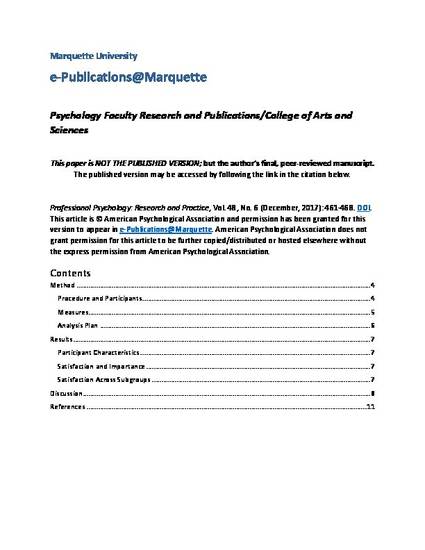
Little is known about the career satisfaction of pediatric psychologists, who specialize in psychological research, teaching, and clinical service in the context of pediatric health care. As part of the larger Society of Pediatric Psychology Workforce Survey and in collaboration with the American Psychological Association Center for Workforce Studies, this study aimed to (1) describe the career domains which pediatric psychologists perceive to be important and their satisfaction in each domain, and (2) compare satisfaction of pediatric psychologists across work settings, number of positions, appointment duration, professional roles, career stage, academic rank, and gender. Responses from 336 pediatric psychologists demonstrated high career satisfaction. Domains of career satisfaction that received mean scores indicating high importance include balance of work and personal lives, peer/collegial support, and flexibility and choice in the workplace, but on average respondents reported being only somewhat satisfied in these domains. Total satisfaction scores were significantly higher among pediatric psychologists in 9–10-month appointments, primarily research careers, and at higher academic ranks, but scores were similar across employment settings and genders. To enhance career satisfaction and retention, pediatric psychologists may seek additional mentorship or explore new employment roles, and administrators and managers may consider adopting workplace policies or making environmental changes that could address specific areas of need.
Available at: http://works.bepress.com/jessica-valenzuela/67/

Accepted version. Professional Psychology: Research and Practice, Vol. 48, No. 6 (2017): 461-468. DOI. © 2018 American Psychological Association. Used with permission.